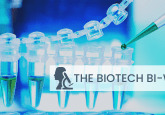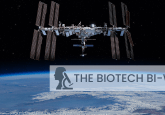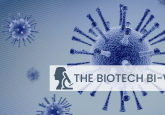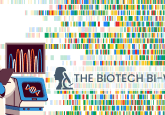The biotech bi-weekly: ddPCR, mass spec and NGS solutions increase throughput and efficiency and a new biomaterial approach to immunotherapy

In this edition, discover a host of new solutions for next-generation sequencing (NGS), mass spectrometry, Droplet Digital PCR (ddPCR) and nucleic acid purification that could enhance your workflows; a new immunotherapy approach that uses biomaterials to ‘train’ the immune system; and a growing cancer research network based around an AI-optimized database.
Products
New ddPCR kit to evaluate AAV vector quality for gene therapy development
Bio-Rad (CA, USA), a clinical diagnostics products company, has launched a new ddPCR kit designed to assess AAV vector quality for gene therapy development. Vericheck ddPCR Empty-Full Capsid Kit can analyze both crude lysate and purified samples to determine capsid titer, genome titer and percentage of full capsids in the sample.
New suite of NGS solutions for oncology biomarker discovery dramatically increases throughput
Takara Bio Europe (Milan, Italy) has launched a suite of NGS systems for biomarker discovery in oncology research. The Shasta Single-Cell System is paired with the Shasta Whole-Genome Amplification (WGA) Kit to enable the processing of 1500 cells per run while detecting copy number variation events at the single-cell level. Meanwhile the Shasta Total RNA-Seq Kit provides full gene body coverage of up to 100,000 cells per run and can detect RNA biotypes, like non-polyadenylated lncRNAs.
Magnetic encoder enables high-precision movements in automated lab machinery
Portescap (PA, USA), a provider of miniature motion solutions, has released an new encoder, the M-Sense16 magnetic encoder, which integrates cutting-edge chip technology to provide the high accuracy required for precise positioning and closed-loop motion feedback. The M-Sense16 magnetic encoder can carry out very fine movements needed for certain diagnostic technologies or lab automation systems.
New mass spec offerings for simplified, productive trace element analysis
Thermo Fisher (MA, USA) have released iCAP™ MX Series ICP-MS, a system that incorporates inductively coupled plasma mass spectrometry (ICP-MS) for trace element analysis in environmental, food, industrial and research spaces.
The launch includes a single quadrupole iCAP MSX ICP-MS and triple quadrupole iCAP MTX ICP-MS. The single quadrupole system has been designed to provide high-level analytical performance without compromising on matrix load and sensitivity, while the triple quadrupole iteration has been developed to enable interference-free analysis for more complex samples.
Nucleic acid purification device for high precision and low waste
Indical Bioscience (Leipzig, Germany), a provider of veterinary molecular and immunodiagnostic solutions, has launched an automated magnetic bead-based nucleic acid extractor. IndiMag 2, is a benchtop device that features a modular plastic design with separate lysis and elution strips. This approach is designed to minimize the amount of plastic waste from the machine.
Partnerships
Novel immunotherapy approach using biomaterials licensed to emerging pharma company
Attivare Therapeutics (MA, USA) has licensed a suite of immune-modulating biomaterial technologies from Harvard University developed at the Wyss Institute, Dana-Farber Cancer Institute, John A. Paulson School of Engineering and Applied Sciences, and Massachusetts General Hospital (all MA, USA).
These biomaterial technologies enable the creation of an in vivo 3D scaffold consisting of mesoporous silica rods (MSR) that form a porous cell-permeable structure that can be injected subcutaneously or into a tumor. MSRs can be loaded with immune cell-recruiting and activating molecules that are delivered into the scaffold’s surrounding environment or retained within the scaffold to be locally presented to immune cells. This essentially acts as a ‘training ground’ for the host immune system, acclimatizing immune cells to home in on target cells. This licensing marks a quasi-homecoming for the technology, as many of Attivare’s founders are from the Wyss Institute and were part of the team that developed the technology.
UVA Cancer Center bolsters precision oncology-focused consortium centered around vast AI-navigable database
The University of Virginia (UVA) Cancer Center (VA, USA) has joined the Caris (TX, USA) Precision Oncology Alliance, a global network of 96 cancer centers, research institutions and healthcare systems set up to facilitate collaboration towards the advancement of precision oncology and biomarker-based research through the improvement of molecular testing.
This grants the UVA cancer center access to Caris’ vast multimodal database, navigable using AI bioinformatics and machine learning functions. The database includes matched molecular and clinical outcomes data from hundreds of thousands of cancer patients.
People and publications
CRO gains highly experienced COO
Sygnature Discovery, a contract research organization based in Nottingham (UK), has appointed Amira Modi as its new Chief Operating Officer. With extensive experience in the life sciences industry, particularly in data optimization, working in companies like IQVIA and GSK (both London, UK), Amira has been appointed to drive operational efficiency and optimize business management.
New director tasked with accelerating commercialization of gene therapy spinout
TestAVec (Maidenhead, UK), a gene therapy safety spinout from Brunel University (London, UK), has been joined by David Laskow-Pooley as a new Director, tasked with accelerating the commercialization of the foundational research at the core of the company. David has prior experience of taking multiple companies in the life science sector from spinout to commercialization.
Massive new site available for the life science industry in Switzerland
Genolier Innovation Hub, a leading center for research and innovation, has opened at “the geographical, technological, and economic crossroads of European markets” in the BioAlps Health Valley in Switzerland. The site consists of 25,000 square meters of offices, labs and training spaces and offers a platform dedicated to education and training including technical facilities, surgical rooms and radiotherapy bunkers. For more information on the new facilities and opportunities to visit, please contact Lily Jeffery at Zyme Communications (Cambridge, UK).





